When it comes to ethical eating, there are many who claim they have the only answer. Some claim that eating any meat is unethical as it kills animals and allegedly harms the planet. However, that claim overlooks the damage industrial crop farming does to the environment as well as the millions of animals killed as a by-products of crop production. Some claim that subsistence eating (ie. hunting, gathering and growing your own foods) is the only way to go, but it is simply not possible for 7.5 billion people to revert back to subsistence lifestyles. But can hunting be an ethical way to eat, as in one of many different styles of eating that is sustainable and ethical? Sure it can. Just as there is not one food group that suits every human, there is not one lifestyle that suits all. We all have different expectations, different capabilities, different skill sets and even different ideas about what is ethical and what is not. The trick is really finding what is ethical and achievable for you and your family.
In this article, I will explain why we hunt, and how we believe that hunting contributes to a more ethical food source.
Why hunt?
Why do people still hunt in a modern world? Surely there are easier and more ‘humane’ ways to source food. And don’t you have to be a psychopath to enjoy killing animals?
While I cannot answer for every hunter on the planet, I can clearly articulate the reasons I hunt, and why, as a family, we believe so strongly in the hunting lifestyle that started this website to help others learn how to hunt.
There are probably hundreds of things our family likes about hunting, and just as many types of hunts we may undertake – meat hunts, crop protection hunts, wildlife and management culls, conservation hunts, predator control, and yes, even the dreaded trophy hunt. But the question was not what, when, or how, but why. Why are we motivated to kill an animal?
The answer can be broken down into three parts – to pursue a more ethical food source; to be part of nature and not just a spectator; and because it’s the responsible thing to do.
Today, I’m going to talk about the first of those reasons.
To pursue a more ethical food source
In our modern world – at least here in the West (what happens in other cultures is a topic for a whole different post) – few people need to hunt for food, as many non-hunters love to point out. Yes, we do have supermarkets that stock a wide variety of food choices for us, and that cater to almost any dietary choice. But that variety and choice also comes at a huge cost – to the environment, to people and yes, even to animals.
We’re not trying to demonise supermarkets or the mechanised food industry at all. It is what it is, and there are days that we’re very thankful that we can call past the supermarket on the way home from work and grab all the ingredients we need to make a meal from the one store. In the past, it may have taken us several hours to achieve the same result, visiting all the individual specialty stores to pick up our key ingredients. Supermarkets have changed our lives and made things a lot easier.
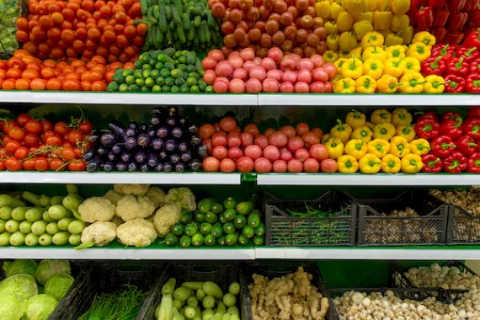
However, if we are trying to determine the most ethical way to eat, a supermarket scores pretty low on that scale.
Here in Australia, the two major chains (Coles and Woolworths) have been heavily criticised for their unconscionable treatment of suppliers, their unethical labour practices, and their monopolistic behaviour – traits I’m sure supermarkets all around the world are just as guilty of.
When you look at their food supplies, things get even dodgier. For starters, food is shipped from all over the globe to ensure consumers have the variety and choice that they demand. Seasonality has become an almost foreign concept. People want to be able to buy their favourite foods all year round, rarely stopping to think about the carbon footprint of the entire supply chain of the foods they choose.
Then there is the waste.
Every day, supermarkets throw out tonnes of food. In fact, it’s believed as much as 50 percent of all commercially produced food ends up as waste – or around 2 billion metric tonnes per year!
There are dozens of reasons why there is so much waste – from overstocked product displays, expiration dates, damaged packaging, outdated marketing and promotional offers, and unpopular items. But at the heart of it all is our desire for cosmetic perfection. We want our food to look ‘Instagrammable’, our fruit and vegetables to be uniform, and free from blemishes. And the beating heart of the supermarket industry is the factory farming that has become so unpopular – and for good reason.
Again, I’m not trying to demonise the industry, or point the finger at farmers. In fact, I strongly believe that farmers are the heart and soul of any society, and like the rest of us, they are just trying to make an honest living. The problem again goes to our societal demand for choice, convenience and perfection. The only way that supermarkets can keep up with consumer demand, and offer a variety of choices at an affordable price is to make the supply chain leaner, faster and more efficient, and the supermarket supply chain stretches all the way back to the farmers, who have to pursue bigger harvests in record times for dwindling profits.
As a journalist, I wrote articles highlighting some of stringent conditions farmers have to accept to supply the major supermarket chains. Often, farmers are contractually obliged to grow or provide the maximum harvest the chain ‘may’ require at any given time, but the chain themselves is under no obligation to actually purchase that amount. Even worse, the farmer is often contractually forbidden to sell the surplus to any other supplier, which leaves them no choice but to destroy the excess.
When supermarkets enter into price wars on food items, it is often the farmer left with reduced profits, not the chain.
But this is an article on hunting, not on supermarkets and their unethical practices. I mention this mostly to demonstrate why society is becoming disillusioned with the industrialised food industry, with many making conscious decisions to find more sustainable and ethical food sources.
Sadly, our desire for ease and convenience has resulted in another major problem for society – we have raised an entire generation that has lost the connection we once had to our rural, agricultural backgrounds and who now have no idea where their food actually comes from
Not too long ago, it was common for households to have a vegetable garden and some chickens in the backyard, even in suburbia. If you grew up in a rural region, you would have probably had some sheep, pigs and cows that ended up on the dinner plate as well. Growing up in a large family, my mother bought our milk straight from the local dairy and as kids, we loved to go on the milk run with her so we could watch the cows being milked in the barn. Even at school, we used to go on excursions to the local farms and milk the cows ourselves, turning the rich cream into butter with a marble in a jar.
My generation knew that the meat we ate came from an animal, and that the animal had to die so we could eat it. In fact, there was probably very little that made its way to our plates that we didn’t know the true source for because we ate so little processed foods.
Now let’s just get one thing straight – I’m not 103! I’m 48. This was commonplace less than 50 years ago.
Today, it’s not uncommon to ask a child where milk comes from, and for their answer to be ‘the supermarket or in a bottle’. Oh, there’s some vague knowledge that the cow is the ultimate source. They may have even watched it on a documentary but it’s unlikely they’ve ever witnessed the process first-hand.
As for meat, while many families still consume it and it forms the basis of many kids’ diets, we shelter our children from the ‘harsh’ reality that animals died to produce that meat.
Social media and Hollywood doesn’t help, either. There’s a growing trend on Instagram and Facebook to mark any photos showing raw meat as sensitive to protect people who might be offended by a simple, biological reality.
As for Hollywood, they won’t even show animals eating other animals in movies, which is exactly what happens in nature. Instead, they depict lions switching to a diet of sushi, or predators and prey living peacefully amongst each other.
Why do you think we’re seeing such a massive upswing in teenagers and young adults becoming Vegan? It’s not really because they prefer vegetables or soy burgers – any parent knows the constant battles we faced with getting kids to eat their veggies. It’s because, when they finally discover the truth, they are horrified – almost like finding out in your 20s that Santa isn’t real!
Unfortunately, the ‘truth’ they are told depicts the very worst of a particular industry or practice – factory farmed cattle in giant feedlots being led to their slaughter, the fear in an animal’s eyes as it awaits death in an abattoir, battery hens in tiny cages that have never seen the light of day, animals being abused by psychotic workers…
You get the picture. You’ve probably seen the PETA campaigns for yourself. Notice that they never show the local farmer raising free-range chickens? Or the paddocks full of happy cows grazing green grass. Instead, they focus on the true horrors of the industry, and rather than change that aspect, they try to demonise the whole lot.
Take beef for instance. It has become popular to demonise all cows and blame them for climate change – and yes, feedlot cattle fed almost entirely on corn and soy is a travesty of modern farming and shouldn’t exist. But that is only a part of farming.
Animal activists never discuss that, in Australia, 97% of all cattle and sheep are grass-fed. If they are given grain at all, it is only for the last 90 days of their life – and only to meet consumer demands for marbled meat.
And let’s not forget that organisations like PETA are not above telling outright lies to win over our youth, convincing them that any animal product – even milk, eggs, wool, honey and other things that don’t result in death – are baaaaad!
So these are some of the reasons that, we as a family, have consciously chosen to extricate ourselves from the mechanised food industry as much as we can and to pursue a more local, organic, sustainable and ethical way to source our food.
We have set aside some space in our backyard for a vegetable garden (and in the process have learned how hard the fight is against nature, pests and animals to get that perfect harvest to the table).
Over the last 12 months, we have even started farming livestock ourselves on some long dormant land, trying to discover how animals farmed properly can actually help the environment and not hurt it!
And yes, we hunt and fish, too.
What food we do buy, we try to purchase from smaller, local food stores, or buy direct from the farmer where we can. Sure, there are still some things we need to buy from the big chain supermarkets, but we are slowly but surely reducing our reliance on them.
Around 95 percent of our meat is either farmed by us or hunted and fished by us. Our freezers are full of sustainable, organic beef, lamb, ducks, pigs, chickens, fish, crayfish, venison, kangaroo, wallaby, and rabbit.
We don’t do this because it’s cheaper or easier. If you want easier, the supermarket does most of the hard work for you, killing, gutting, and butchering the animal and then presenting it on a neat little polystyrene tray for you to just cook up.
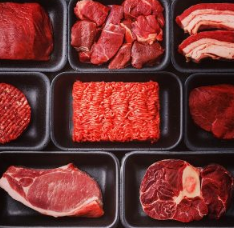
Hunting and fishing can both be expensive pastimes – though it is possible to do both on a shoe-string budget. And farming is hard work. Truth be told, we probably spend far more time and money sourcing our food than we ever did before we made the switch.
But we also couldn’t be happier.
Why? Because we wholeheartedly believe that this way of eating is organic, sustainable and, perhaps above all, ethical.
Not everyone can farm their own foods, and not everyone will choose to hunt. But if more people did it, not only would we be more connected to the foods we eat, we would actually be eating healthier, more sustainable foods than simply relying on global supply chains to feed the masses.
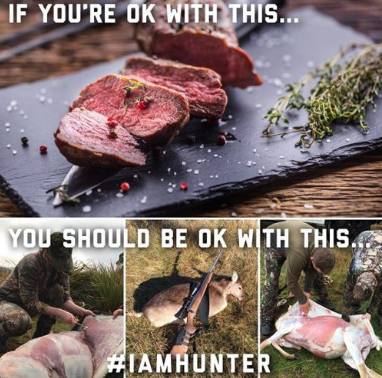
What is I Am Hunter?
I Am Hunter wants to change the way hunting is perceived and to change the conversation from a negative one driven by anti-hunters to a positive one led by hunters.
Our goal is to help hunters become positive role models and ambassadors for hunting, while simultaneously helping non-hunters understand why hunting is important.
You can become a supporter and help us achieve our goal and spread a positive message about hunting with the wider community.
Our other channels
Follow us on Facebook
Follow us on Instagram
YouTube
Subscribe to our YouTube channel.
Get our newsletter
Get our free monthly newsletter direct to your inbox
Listen on iTunes
Listen to our podcast on iTunes.
TV series
Watch I Am Hunter episodes on My Outdoor TV (MOTV)
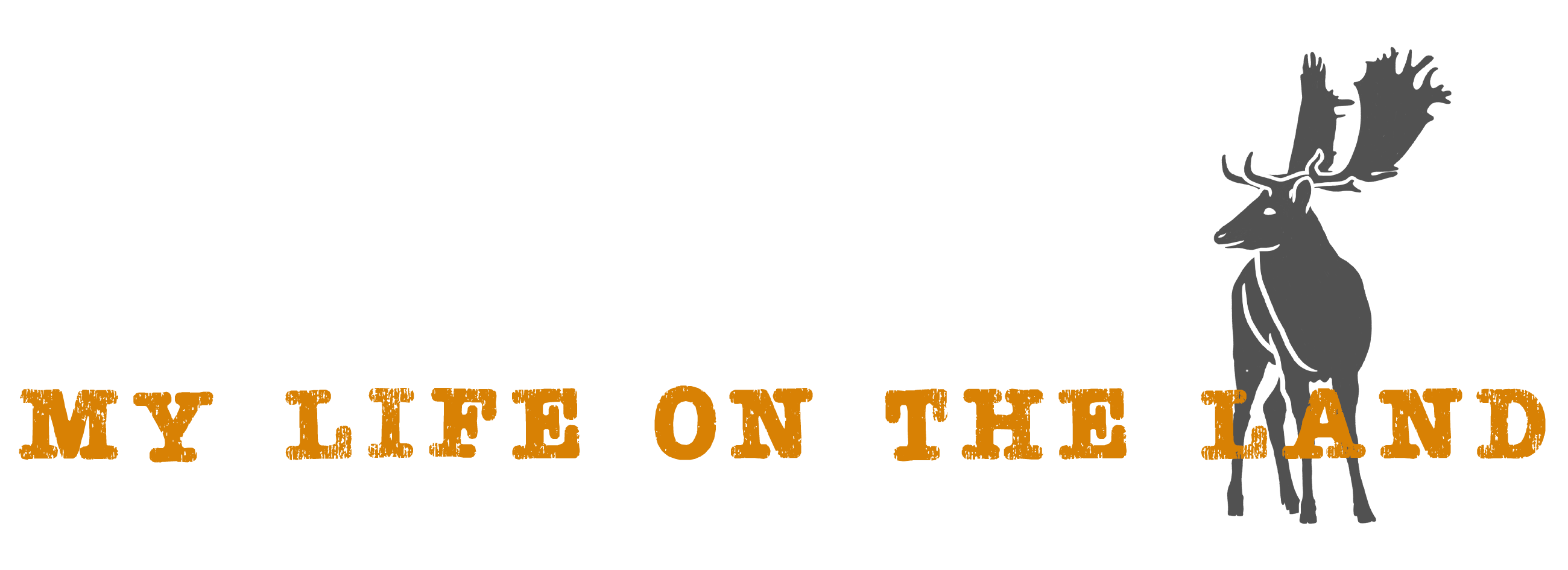

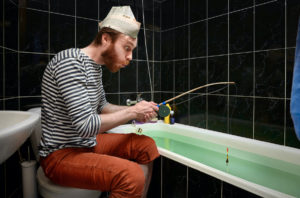
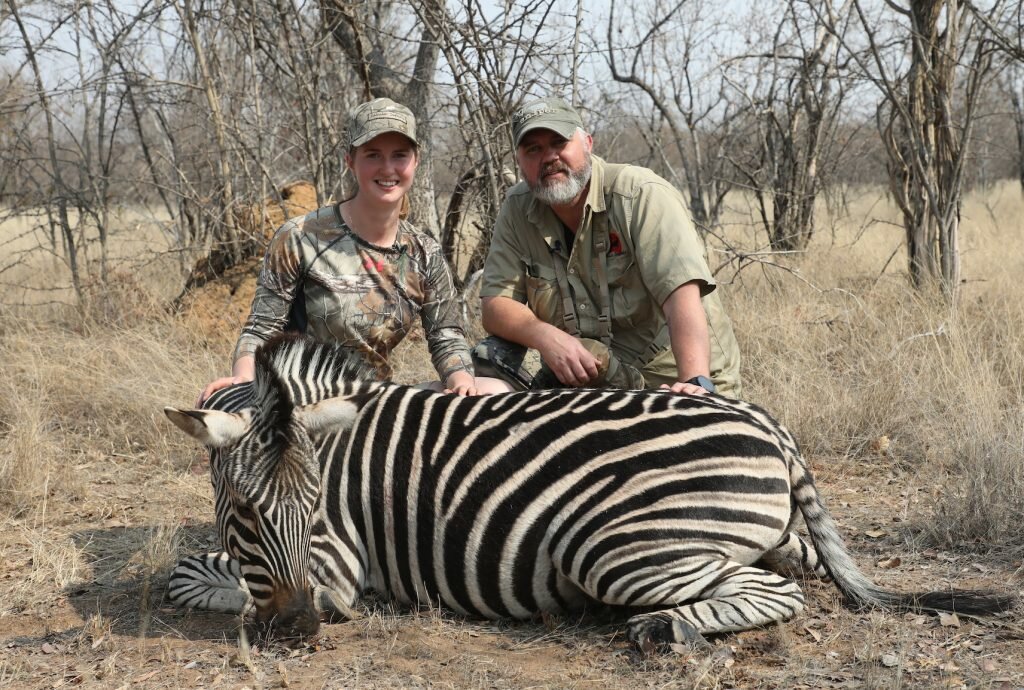

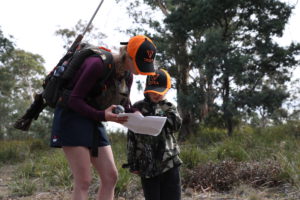
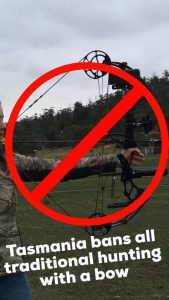
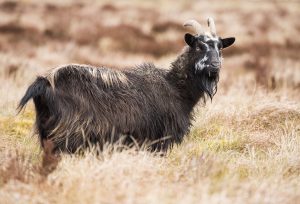
2 thoughts on “Is hunting an ethical way to eat?”